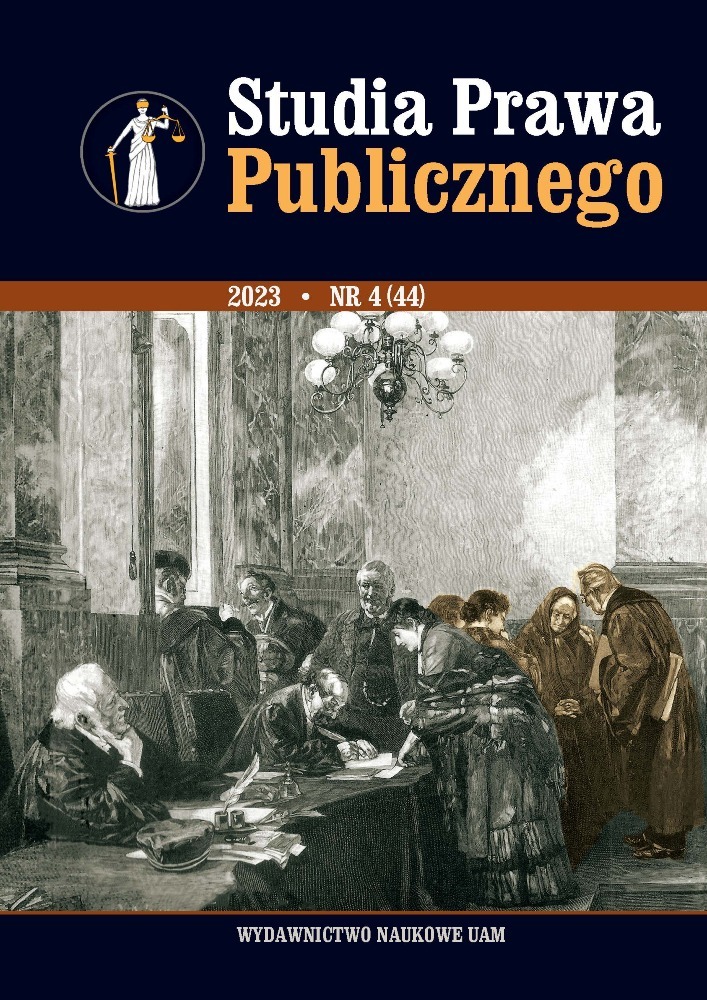Wykonywanie zadań publicznych jako determinanta podmiotowych granic publicznego prawa podmiotowego dostępu do informacji publicznej
Performing public tasks as a determinant of the subjectivelimits of the public subjective right of access to public information
Author(s): Wojciech JakimowiczSubject(s): Economy, Public Finances
Published by: Uniwersytet Adama Mickiewicza
Keywords: public tasks; entity performing public tasks; right of access to public; information; public subjective right; doctrinal interpretation
Summary/Abstract: The study concerns the subjective limits of the public subjective right to public information. It attempts to answer the question of the addressee of the claim characterizing this right in the Polish legal order from the perspective of constitutional regulations and the provisions of the Act on Access to Public Information. The analysis focuses on the interpretation of the statutory concepts of “public tasks” and “entity performing public tasks” using the method of doctrinal interpretation as necessary in this respect. At the same time, such an understanding of doctrinal interpretation was adopted, according to which it is an interpretation carried out in the process of implementing the law, i.e. in specific circumstances, by the entity implementing this law and made from the point of view of the science of law, i.e. when referring to scientific arguments in the justification of the position and proposed solutions presented. For this reason, the results of the doctrinal interpretation of the terms “public task” and “entity performing public tasks” were also referred to the views presented in the jurisprudence of administrative courts. The analysis led to the conclusion that an “entity performing public tasks” within the meaning of the Act on Access to Public Information can be spoken of when the obligation to act of a specific entity corresponding to the content of the public task is anchored in a legal norm addressed to this entity, and the responsibility for its implementation is borne by the public-law community (state, self-government communities), of which this entity becomes a body in the functional sense. At the same time, this analysis justifies the conclusion that the theoretical constructions of administrative law, apart from their obvious scientific value, also have operational significance, and the need or even necessity to use the method of doctrinal interpretation in the area of this law seems obvious.
Journal: Studia Prawa Publicznego
- Issue Year: 44/2023
- Issue No: 4
- Page Range: 11-37
- Page Count: 27
- Language: Polish

